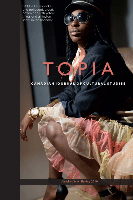
TOPIA-Canadian Journal of Cultural Studies
Scope & Guideline
Exploring the intersections of culture and scholarship.
Introduction
Aims and Scopes
- Interdisciplinary Cultural Studies:
The journal promotes a multidisciplinary approach to cultural studies, integrating insights from sociology, anthropology, media studies, and literary criticism to explore complex cultural phenomena. - Critical Race and Gender Studies:
TOPIA focuses on issues of race, gender, and class, particularly the experiences and representations of marginalized communities in Canada, fostering discussions around anti-racism, feminism, and queer theory. - Digital and Media Cultures:
Research on the impact of digital technologies and media on cultural practices and identities is a key area of focus, analyzing how platforms shape intimate relations and societal interactions. - Activism and Social Justice:
The journal encourages scholarly work that intersects with activism, exploring how cultural studies can inform and mobilize social justice movements, particularly in relation to Black Lives Matter and other contemporary struggles. - Post-Colonial and Decolonial Perspectives:
TOPIA includes research that interrogates colonial legacies and seeks to decolonize cultural narratives, fostering discussions on Indigenous rights and the complexities of migration and belonging.
Trending and Emerging
- Intimacy and Digital Cultures:
There is a growing interest in the concept of intimacy as it relates to digital platforms, examining how technology mediates personal relationships and affects social interactions. - Black Studies and Anti-Racism:
The journal has increasingly prioritized discussions around Black studies and anti-racist activism, reflecting a broader societal push for racial justice and the recognition of Black voices in academia. - Biopolitics and Surveillance:
Emerging themes around biopower, surveillance, and the politics of data collection highlight contemporary concerns about privacy and the governance of bodies in the digital age. - Decolonial and Indigenous Perspectives:
An expanding focus on decolonial theory and Indigenous studies illustrates a commitment to addressing colonial legacies and promoting Indigenous knowledge systems within cultural discourse. - Queer Theory and Sexuality Studies:
There is a notable increase in research addressing queer identities and experiences, particularly in relation to intimacy, representation, and resistance within cultural contexts.
Declining or Waning
- Traditional Literary Criticism:
There is a noticeable decrease in papers focused solely on traditional literary analysis, as the journal shifts towards more interdisciplinary and socially engaged approaches. - Eurocentric Cultural Narratives:
Research centered on Eurocentric perspectives is waning, giving way to more diverse and inclusive frameworks that prioritize marginalized voices and experiences. - Static Theoretical Frameworks:
The use of static or classical theoretical frameworks, such as formalism or structuralism, appears to be less prominent, as scholars increasingly seek dynamic and context-sensitive approaches to cultural analysis.
Similar Journals

Kritika Kultura
Exploring the intersections of culture and literature in a global context.Kritika Kultura is an esteemed journal published by Ateneo de Manila University, dedicated to advancing the fields of cultural studies, literary criticism, and post-colonial theory. With its ISSN 2094-6937, this journal serves as a vital platform for scholars and practitioners interested in interdisciplinary research that analyzes the complexities of culture and literature within various socio-political contexts in the Philippines and beyond. Although currently not operating under an open-access model, Kritika Kultura is committed to fostering academic dialogue and disseminating significant research findings, making it an essential resource for researchers, professionals, and students alike. By showcasing innovative approaches and scholarly discourse, the journal contributes to the rich tapestry of Filipino and global academic thought, reinforcing its importance in contemporary scholarship.

Meridians-Feminism Race Transnationalism
Navigating the Intersections of Feminism and TransnationalismMeridians: Feminism, Race, Transnationalism is an influential scholarly journal published by Duke University Press, dedicated to exploring the intersections of feminism, race, and global dynamics. With an ISSN of 1536-6936 and an E-ISSN of 1547-8424, this journal provides a vital platform for interdisciplinary research, particularly within the fields of anthropology and gender studies, as evidenced by its 2023 categorization in Q3 in both domains, and Q4 in social sciences. The journal's dedication to amplifying marginalized voices and perspectives in academia makes it essential for researchers, students, and professionals who seek to understand the complexities of transnational feminist movements. Published in the United States, Meridians operates without open access restrictions, ensuring that its significant contributions to critical scholarship are disseminated widely, fostering inclusive conversations around pressing societal issues. The journal aims to bridge theory and practice, making it a crucial resource for anyone looking to engage thoughtfully with the challenges faced at the convergence of race, gender, and global politics.

Social Analysis
Unpacking the Dynamics of Human ExperienceSocial Analysis, an esteemed academic journal published by BERGHAHN JOURNALS, is at the forefront of interdisciplinary research, focusing on the dynamic intersections of anthropology, cultural studies, sociology, and the arts and humanities. Since its inception in 2002 and having transitioned to an Open Access model in 2020, the journal ensures that critical social research is widely accessible to scholars and the public alike. With an impressive Q1 ranking in Anthropology and cultural studies and holding a notable Q2 in Sociology and Political Science, it garners attention from a large academic audience, as evidenced by its high Scopus rankings: 10th in general arts and humanities and 153rd in cultural studies. This signifies its influential role in shaping contemporary discourse and providing a platform for innovative ideas and methodologies in understanding social phenomena. Based in Brooklyn, NY, the journal is dedicated to fostering scholarly dialogue and advancing the field, making it an essential resource for researchers, professionals, and students eager to engage with and contribute to the field of social analysis.

Genre Sexualite & Societe
Unveiling the Layers of Gender and Sexuality in SocietyGenre Sexualite & Societe is a renowned open-access journal published by ECOLE HAUTES ETUDES & SCIENCES SOC-EHESS, COLL FRANCE, focusing on the complex dynamics of gender, sexuality, and society. Since its inception in 2009, this journal has established itself as a vital resource for interdisciplinary research, fostering scholarly discussion among researchers, professionals, and students in the fields of sociology, gender studies, and sexualities. With an ISSN of 2104-3736 and a commitment to providing freely accessible content, Genre Sexualite & Societe aims to bridge gaps in knowledge and promote diverse perspectives on contemporary social issues. Based in Paris, France, the journal encourages the submission of innovative research which explores the intersections of identity, power structures, and social practices, underscoring its significance in the academic community.
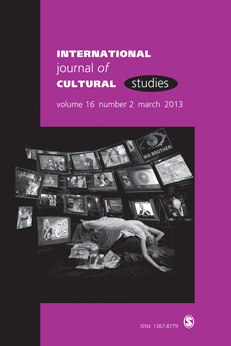
International Journal of Cultural Studies
Exploring the Depths of Global CultureInternational Journal of Cultural Studies, published by SAGE Publications Inc., is a leading peer-reviewed journal in the field of cultural studies. Established in 1998 and poised to continue its academic legacy into 2024, this journal maintains a prestigious position, reflected in its 2023 Q1 ranking within the cultural studies category and its impressive Scopus rank of #54 out of 1304, placing it in the 95th percentile among its peers. The journal serves as a critical platform for researchers, practitioners, and students alike, facilitating the dissemination of innovative ideas and research findings that shape our understanding of culture in a globalized world. Though not an open-access publication, it provides subscribers with rich insights and interdisciplinary approaches, making it crucial for anyone engaged in the study of cultural phenomena, societal developments, and theoretical perspectives.
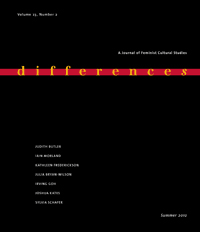
Differences-A Journal of Feminist Cultural Studies
Challenging Narratives, Amplifying VoicesDifferences: A Journal of Feminist Cultural Studies is a distinguished academic journal published by DUKE UNIVERSITY PRESS, dedicated to exploring the intricate intersections of gender, culture, and society. With an ISSN of 1040-7391 and an E-ISSN of 1527-1986, this journal serves as a vital platform for feminist scholarship, contributing to critical discussions in both cultural studies and gender studies. The journal has achieved an impressive 2023 ranking in Q2 for Cultural Studies and Q3 for Gender Studies, underscoring its relevance and impact in these fields, as reflected in its Scopus rankings. Although not open access, the journal offers a range of insightful articles and research that span from its inception in 1994 to 2024, making it an essential resource for researchers, professionals, and students interested in feminist theories and cultural analysis. By publishing innovative and thought-provoking content, Differences continues to challenge dominant narratives and foster diverse voices within feminist discourse.
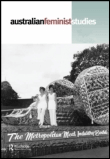
AUSTRALIAN FEMINIST STUDIES
Fostering innovative ideas for a gender-equal future.AUSTRALIAN FEMINIST STUDIES is a premier journal dedicated to advancing the discourse within the field of gender studies, published by Routledge Journals, Taylor & Francis Ltd. With an ISSN of 0816-4649 and an E-ISSN of 1465-3303, this journal provides a critical platform for scholarly research and feminist inquiry, exploring diverse perspectives and methodologies in the context of Australian and global feminism. Having been in publication since 1985, it has gained a distinguished reputation, recently achieving a Q2 quartile ranking in gender studies as per the 2023 category quartiles and holding an impressive ranking of #64 out of 213 in the Scopus database. The journal’s commitment to rigorous peer-reviewed research ensures that it remains a vital resource for researchers, professionals, and students alike, serving as an essential hub for innovative ideas and transformative practices. Although currently not open access, it continues to attract a global readership eager to engage with the critical issues shaping feminist thought today.
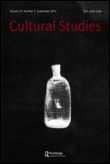
CULTURAL STUDIES
Pioneering Research in Cultural StudiesCULTURAL STUDIES, published by Routledge Journals, Taylor & Francis Ltd, is a prestigious academic journal dedicated to the exploration and analysis of cultural phenomena across diverse contexts. With an ISSN of 0950-2386 and an E-ISSN of 1466-4348, this journal has established itself as a leading platform for scholars, researchers, and practitioners interested in the intersections of culture, identity, and society. Since its inception, CULTURAL STUDIES has transitioned through several converged years of publication, currently producing cutting-edge research that reflects its strong positions in Q1 quartiles across multiple disciplines, including Anthropology, Social Sciences, and Arts and Humanities. With an impressive Scopus rank of 75/1304 in Cultural Studies, the journal is an essential resource for those seeking to engage with the latest theoretical frameworks and methodologies in understanding cultural dynamics. Although it is not currently open access, CULTURAL STUDIES remains a critical vessel for disseminating knowledge that impacts both academic and practical applications in cultural analysis. For scholars and students eager to contribute to this vibrant field, the journal serves not only as a repository of knowledge but also as an inspiration for further inquiry into the complexities of culture.
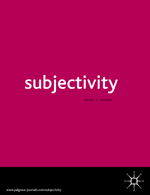
Subjectivity
Exploring the Depths of Human ExperienceSubjectivity is a prominent journal under the esteemed Palgrave Macmillan Ltd, focusing on the intricate realms of Applied Psychology and Social Psychology. With an ISSN of 1755-6341 and an E-ISSN of 1755-635X, this journal provides a platform for rigorous research and insights into the subjective experiences that shape human behavior and cognition. As a recognized publication since 2015, it has consistently made significant contributions to the field, with a current Scopus ranking in the Q4 quartile for both Applied and Social Psychology. Despite facing competitive circumstances, as indicated by its rankings in the 15th and 16th percentiles within its respective categories, Subjectivity serves as a vital resource for researchers, professionals, and students aiming to explore and expand the understanding of subjective factors in psychological contexts. While it is not an Open Access journal, its rigorous peer-review process ensures that each publication maintains a high standard of scholarly integrity. For those seeking to delve into the nuanced aspects of human subjectivity, Subjectivity is an essential addition to any academic library.
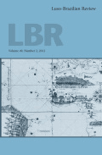
Luso-Brazilian Review
Connecting Portugal and Brazil through Academic DialogueLuso-Brazilian Review is a premier academic journal published by University of Wisconsin Press, dedicated to advancing the study of Lusophone cultures, literature, history, and socio-political contexts. With an ISSN of 0024-7413 and E-ISSN 1548-9957, this journal serves as a vital resource for scholars who seek to explore the rich and diverse connections between Portugal and Brazil. It holds notable distinction with a Q1 ranking in Literature and Literary Theory and consistently performs well in Cultural Studies and History, making it an essential publication for both researchers and enthusiasts in these fields. Although not open access, the journal offers a wealth of peer-reviewed articles that probe into intricate themes impacting Lusophone literature and cultural studies from 1978 to 2024, ensuring that readers remain at the forefront of ongoing scholarly conversation. Housed in the heart of the United States at Madison, WI, Luso-Brazilian Review continues to cultivate an academic dialogue that is relevant, timely, and invaluable for professionals, students, and anyone interested in the cultural interplay between Lusophone nations.